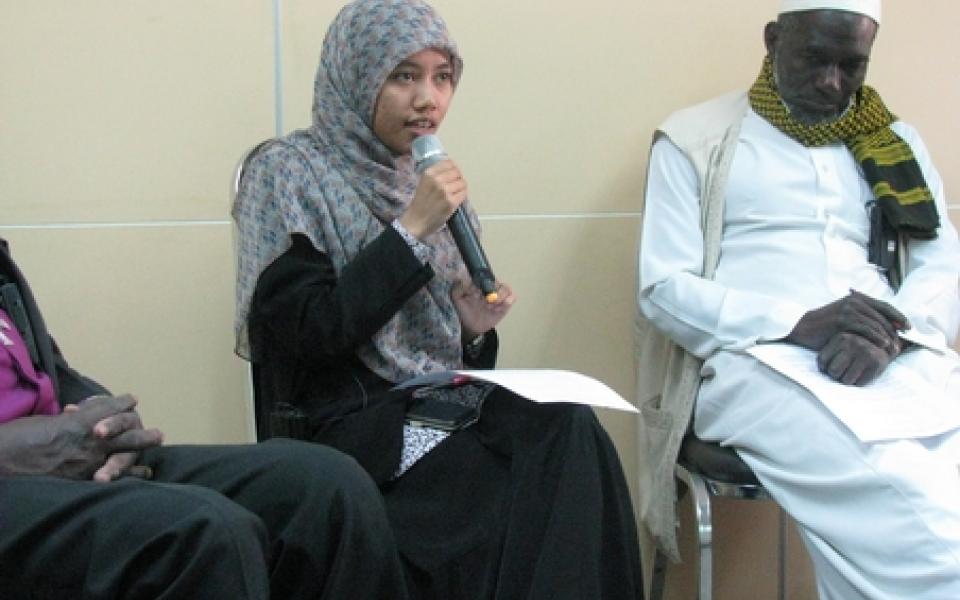
Dear Friends,
URI membership representatives here got the opportunity to conduct an exchange program with the Peace Information Center in Thailand from the Jan. 18 to 23, sponsored by the Open Society Initiative for Eastern Africa. We left as five URI members from Uganda and went to Thailand to dialogue and share experiences on the themes of religion, conflict, politics and peace.
The exchange in Thailand was segmented in two ways. One part was in a workshop, where academic papers were presented with the guidance of Professor Chaiwat, who was also our lead exchange partner on behalf of the Peace Information Center. This was in Chiang Mai, while the actual exchange took place in Bangkok. The workshop was meant to draw us into understanding the dynamics of the selected theme experiences in the Asian countries.
Presentations were made on the conflicts in Sri Lanka, Vietnam and Thailand. The highlights here clearly indicated the challenges that related religion to governance, community injustice, and leveled economic opportunities, among others. The conflicts also had a similar dimension to our own experiences, which ranged from land conflicts to unfair economic distribution, ethnic conflicts and poor governance.
The roles played by religious leaders and women were most evident in the countries of Sri Lanka and Vietnam. Women were able to cause change through their bold intervention strategies while the religious leaders took on the mediatory roles. Although this part of the exchange was academic in nature, our teams shared very well our experiences, most especially the experience of northern Uganda and the Joseph Kony insurgency. It was indeed a learning experience for the entire group on how peace efforts had to come the hard way to establish the current relative peace in northern Uganda.
The second part of our exchange was conducted in Bangkok. There we sat in a URI circular form. We didn't want to have borders for our conversation, but rather had a free-spirited sharing that later culminated into a search for possible strategies to address conflicts and heal the wounded living souls.
Some of the questions that were common were: How can religion contribute to peace in the current turbulent world? Why is the manifestation of violence growing in places of worship? Why is religious fundamentalism given a higher platform than peace building efforts world over? and why are religious fundamentalist killings mostly happening in countries that are considered to be more religious?, as well as why are political leaders these days mostly using religion to advance their political interests and agendas?
Some of these questions were hard to answer, while others were answered as follows: Religion is still upheld by many communities and its values are still relevant in today's world. It is the few who want to destroy those upheld values, and unfortunately the media is contributing a lot by highlighting them. Fundamentalists want to destroy what you hold dear so as to cause more harm and hate to anyone, hence targeting places of worship. Religion is also easy to use because of its social mobilization factor and unquestionable nature.
We also realized that for a community to have peace is not as easy as it sounds, as it cuts across all sectors. However, it is worth a try to build it day-by-day in our individual capacities. Interfaith is a major starting point in building peace because it brings together core values that people uphold to address a social action that they feel affects all of them, hence mutually co-existing in their diversity.
There is a full report for this meeting, but I would bore you to write it all here. The return exchange by the Thai group will be made in May to Uganda, when they will visit Kampala and northern Uganda. The last leg shall then be for the Ugandan team again to visit the affected communities in Southern Thailand.
One professor in the meeting once said that "The strength of any community or country is not necessarily the guns they have, but rather how they relate and connect with each other as a diverse community.”
Thank you for your prayers and support for the work we do.
In peace and gratitude,
Despina Namwembe
Regional Coordinator
United Religions Initiative (URI)- Great Lakes
